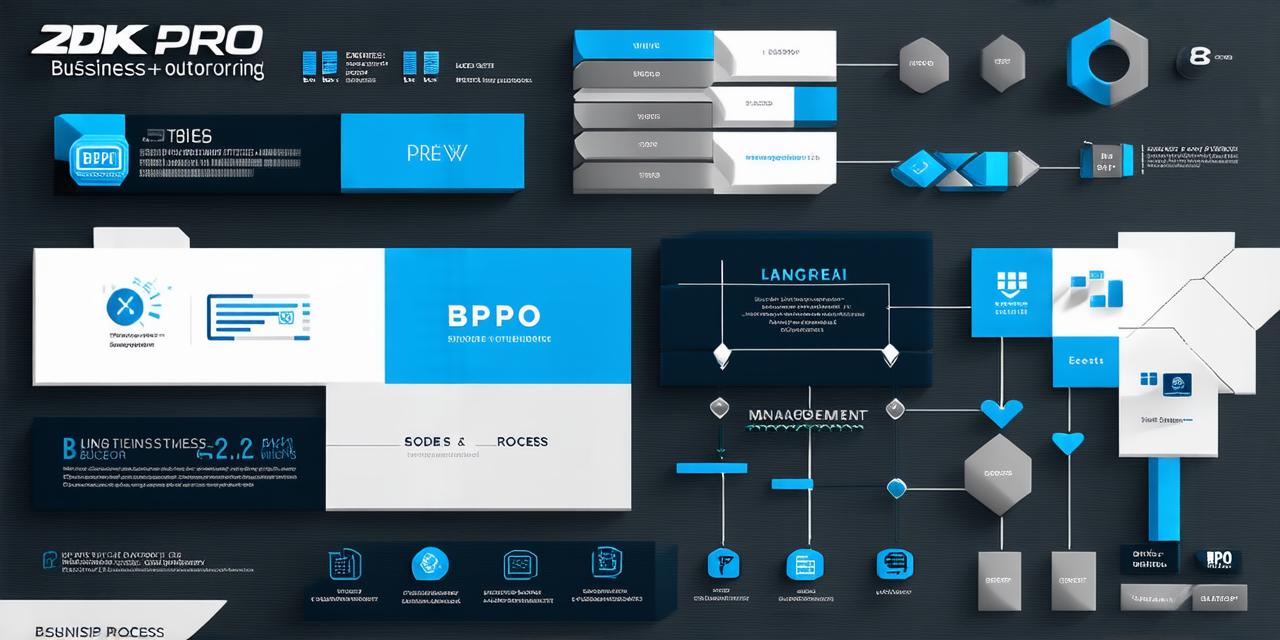What is a business process outsourcing
BlogBusiness process outsourcing (BPO) refers to the practice of outsourcing business processes and functions to third-party providers who specialize in these tasks. BPO allows companies to focus on their core competencies while delegating non-core activities such as customer service, accounting, and IT support to external vendors.
The advantages of BPO are numerous, including reduced costs, increased efficiency, and improved quality of service. By outsourcing certain processes, companies can take advantage of the expertise and resources of specialized providers, which can lead to cost savings and faster turnaround times. Additionally, BPO allows companies to free up internal resources to focus on more strategic initiatives.
BPO is particularly popular among small and medium-sized businesses (SMBs) that may not have the resources or expertise to handle certain processes in-house. However, even larger enterprises can benefit from BPO by leveraging the specialized skills of external providers to support their operations.
Table of Contents
ToggleBenefits of Business Process Outsourcing
1. Reduced costs: One of the main benefits of BPO is cost savings. By outsourcing non-core processes, companies can reduce their overhead expenses and avoid the cost of hiring and training internal staff.
2. Increased efficiency: BPO can help companies streamline their operations by automating certain processes and reducing manual labor. This can lead to faster turnaround times and improved productivity.
3. Improved quality of service: BPO can also help companies improve the quality of their products and services by leveraging the specialized skills and expertise of external providers.
4. Flexibility: BPO provides companies with flexibility in terms of resource allocation and scalability. This can be particularly useful for SMBs that may not have the resources or expertise to handle certain processes in-house. By outsourcing processes to external providers, these companies can scale up or down as needed.
Challenges of Business Process Outsourcing
1. Communication: One of the main challenges of BPO is effective communication between internal and external teams. This can be particularly difficult when working with vendors located in different time zones or countries. It is important to establish clear communication channels and protocols to ensure that everyone is on the same page.
2. Data security: Another challenge of BPO is data security. When outsourcing certain processes, companies may need to share sensitive information with external providers. It is important to ensure that this information is protected and only accessed by authorized personnel.
3. Quality control: Quality control can also be a challenge in BPO. Companies must ensure that external providers are meeting their standards and delivering the level of service they expect. This may require regular monitoring and reporting to identify areas for improvement.
Real-Life Examples of Business Process Outsourcing
1. Intuit QuickBooks: Intuit QuickBooks is a popular accounting software company that has successfully implemented BPO strategies. The company outsources certain processes such as customer service, IT support, and data entry to external providers in India and the Philippines. This has allowed the company to focus on its core competencies while leveraging the expertise and resources of specialized vendors.

2. McDonald’s: McDonald’s is another example of a company that has successfully implemented BPO strategies. The company outsources certain processes such as payroll, accounting, and IT support to external providers in India and the Philippines. This has allowed the company to reduce costs and improve efficiency while maintaining high-quality service for its customers.
3. DHL: DHL is a global shipping and logistics company that has implemented BPO strategies in several areas. The company outsources certain processes such as customer service, IT support, and data entry to external providers in India and the Philippines. This has allowed the company to focus on its core competencies while leveraging the specialized skills and resources of external vendors.
Common Misconceptions About Business Process Outsourcing
1. Outsourcing is only for cost savings: While cost savings are a major benefit of BPO, this is not the only reason companies should consider outsourcing certain processes. BPO can also improve efficiency, quality of service, and flexibility.
2. Outsourcing means losing control: Many companies worry that outsourcing certain processes means they will lose control over their operations. However, by working with specialized providers, companies can gain access to a wider range of expertise and resources, which can lead to better outcomes and more effective operations.
3. All processes are suitable for outsourcing: Not all business processes are suitable for outsourcing. Companies should carefully consider which processes are best suited for external support and which require in-house expertise and resources.
FAQs About Business Process Outsourcing
1. What types of processes can be outsourced?
- Most business processes can be outsourced, including customer service, accounting, IT support, and human resources.
2. How do I choose the right BPO provider?
- When choosing a BPO provider, it is important to consider factors such as their expertise, experience, and location. You should also ensure that they have access to the technology and resources needed to deliver your desired outcomes.
3. What are the risks associated with outsourcing?
- The main risks of outsourcing include data security breaches, quality control issues, and communication breakdowns. It is important to establish clear protocols and monitoring mechanisms to minimize these risks.
4. Is BPO right for my company?
- Whether BPO is right for your company depends on your specific needs and goals. If you are looking to reduce costs, improve efficiency, or gain access to specialized expertise and resources
